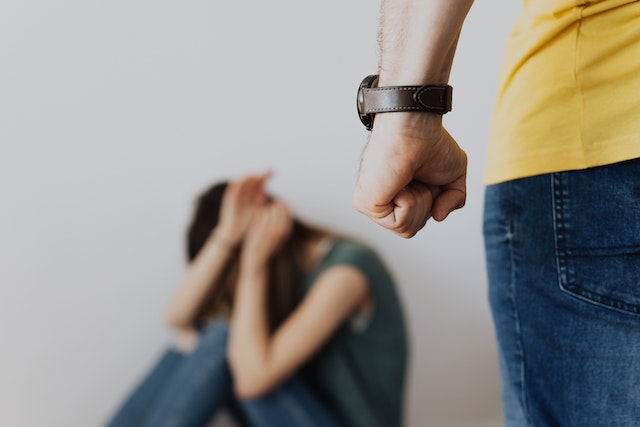In our society, it is very difficult to identify abuse in relationships. Since childhood, we are told that marriage is a sacred bond created by God and that God can never commit any mistake. That’s why couples find it difficult to accept that they are being abused in a relationship.
We live in a country where domestic violence is the topmost crime committed against women. Men, too, reel under domestic violence, but there is no law supporting them. Emotional abuse is still not recognized as a ground for separation because couples don’t identify the early signs of emotional abuse.
Recommended reading: How to Help Your Daughter Break Free from a Toxic Relationship
Relationships become abusive when gender power play and general indifference come in the way of love. When gender power play starts controlling the dynamics of relationships, they make space for committing gender crimes.
When general indifferences between couples are not resolved, relationships become the ground of unhappiness and dissatisfaction. Moreover, when bonds are formed not based on love but based on social acceptance, caste, and community, it is more likely that such bonds end up being toxic, bad, and abusive.
But even if relationships turn abusive, why are couples trapped in it? Why are they not able to walk out of it? Here are a few reasons why we get trapped in abusive relationships.
1. Patriarchal conditioning of men and women
Men and women are conditioned to stay in a marriage even if it is abusive. Marriage is considered a sacred bond that cannot be broken, as breaking it will be equivalent to defying God’s decision.
Often, people grow up witnessing abusive marriages in their homes which makes them normalize abuse in relationships. Women, for example, are always told to respect their husbands as Gods no matter how they are as a person and how they treat women.
Men are also taught to expect women to be submissive in marriage and responsible for taking care of their needs. Men grow up learning that the purpose of having women in life is to demand different types of service from them.
Because of this, men and women get tied into a bond that is based on wrong expectations and assumptions. And since it is their conditioning, it becomes difficult or impossible for people to unlearn.
2. Stigma around divorce
Living in a society where divorce is a stigma, getting out of abusive relationships is very difficult. More often than not, abuse is normalized as a part of the wear and tear of relationships. Even if some couples muster the courage to get rid of abusive relationships, the stigma around divorce holds them back.
We live in a country where the divorce rate is more or less than one percent. Divorce is never considered a logical way to solve issues of relationships in our society. And so couples remain stuck in abusive relationships.
3. Fear of being judged
If a person walks out of or complains about an abusive relationship, society judges them based on their gender. Women are termed as weak for not being able to bear ‘little’ discomfort in marriage. They are labeled as unsanskari for disrespecting their husband and families by complaining about abuse in relationships.
Men, on the other hand, are considered weak for being abused by a subservient gender. They are shamed for not being manly enough to control their wives. And so, neither men nor women complain about abusive relationships and remain trapped in them.
4. Who will take care of the children?
Many couples remain trapped in abusive and unhappy relationships because of their children. Usually, society thinks that producing children will act as a bandage to the damage that a relationship incurs. But it is just not true. On the contrary, having a child in an abusive marriage only adds to a child’s traumas. Neither parents are able to team up to raise the child better. Nor are kids able to understand the damaged dynamics between their parents.
So staying in a toxic relationship for your child is not helping them at all. Rather getting out of a toxic relationship when you have children and proper management of custody can help proper upbringing of kids, if not the best.
Abusive relationships are common in our society. But what we need to change is the way we deal with them. We need to think about solving the problem through professional help, or divorce rather than making it worse by bearing and sacrificing yourself and adding to your child’s mental trauma.




